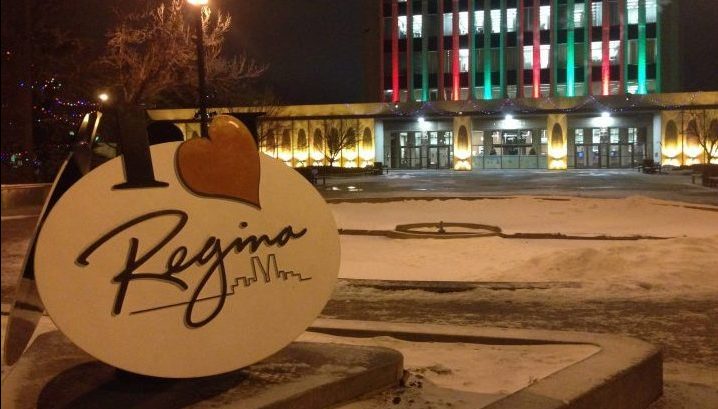Regina’s executive committee wants city council to look into regulating a growing number of “body rub” parlours — the term the city uses for massage parlours known for selling sexual services.

While Wednesday’s vote only recommends that council conduct consultations on these businesses, additional questions of ethics, potential policies and sanitation quickly took over at the meeting.
“Some are thinking it should be completely illegal,” said Regina Mayor Michael Fougere. “Others say regulate it, others not so much. It’ll be difficult.”
The move for change was sparked by changes to the definition of prostitution in Canada’s criminal code. Bill C-36, or the Protection of Communities and Exploited Persons Act, came into effect in December of 2014.
Regina police believe there are roughly 21 “body rub” parlours selling sexual services across the city and want to see regulations on these businesses, and a change in how they’re described to distance registered massage therapists from the situation.

Get breaking National news
“The Criminal Code only goes so far in making communities safe,” Supt. Corey Zaharuk said. “We think this will better help us respond to those vulnerable workers inside and provide a safer community.”
- Khamenei’s death met with ‘jubilation’ among Iranian-Canadians: Liberal MP
- ‘At first I cried’: How Iranian Canadians are reacting to the U.S. strikes in Iran
- Iran begins search for new leader; U.S. military says 3 service members killed
- Queen’s University students stranded in Doha after Iran attack shuts down airspace
Suggested approaches focus on two potential ways of regulating these businesses: First, an approach that would minimize the impact of the establishments on adjacent businesses and neighbourhoods and second, an approach that would focus on the safety of parlour workers and their clients.
In the first approach, “body rub” parlours would only be able to operate in industrial areas with a discretionary use permit- keeping them away from main roads but costing taxpayers more for zoning and enforcement.
The second approach would establish an adult services licensing bylaw that would require both the parlour and the practitioners to be licensed.
A clampdown on where the establishments could operate would result in a higher enforcement price tag that would be passed on to taxpayers, though it would improve the city’s knowledge of who is working and who is buying these services.
Councillor Sharron Bryce said she wasn’t comfortable with the idea of taxpayers subsidizing illegal activities.
Ed Smith, a local resident who says his daughter was lured into the sex trade and murdered less than a year after entering the industry, was one of seven people sharing their thoughts on the subject.
“I wish they were not in our city at all, but that might be a bit of a pipe dream,” Smith said. “I really believe if they’re going to be here, they need to be strongly regulated.”
He said he hopes to see high licensing fees, exit options for parlour employees and strict screening processes for workers and clients.
“It’s important for us to know who is working in the sex trade because many of them are vulnerable,” Zaharuk said. “We want to protect them as much as we can as well.”
Another woman, Jane, saw things differently.
“Do we see a way to minimize the impact of murder and theft in our community? No. We would try to eradicate as best we can, understanding we’ll never completely get rid of it. I think it’s our responsibility to do our best.”
On Dec. 17, council will decide whether or not to take the next step forward by consulting the public, police and workers themselves.
If approved, those talks will start in early 2019.








Comments
Comments closed.
Due to the sensitive and/or legal subject matter of some of the content on globalnews.ca, we reserve the ability to disable comments from time to time.
Please see our Commenting Policy for more.